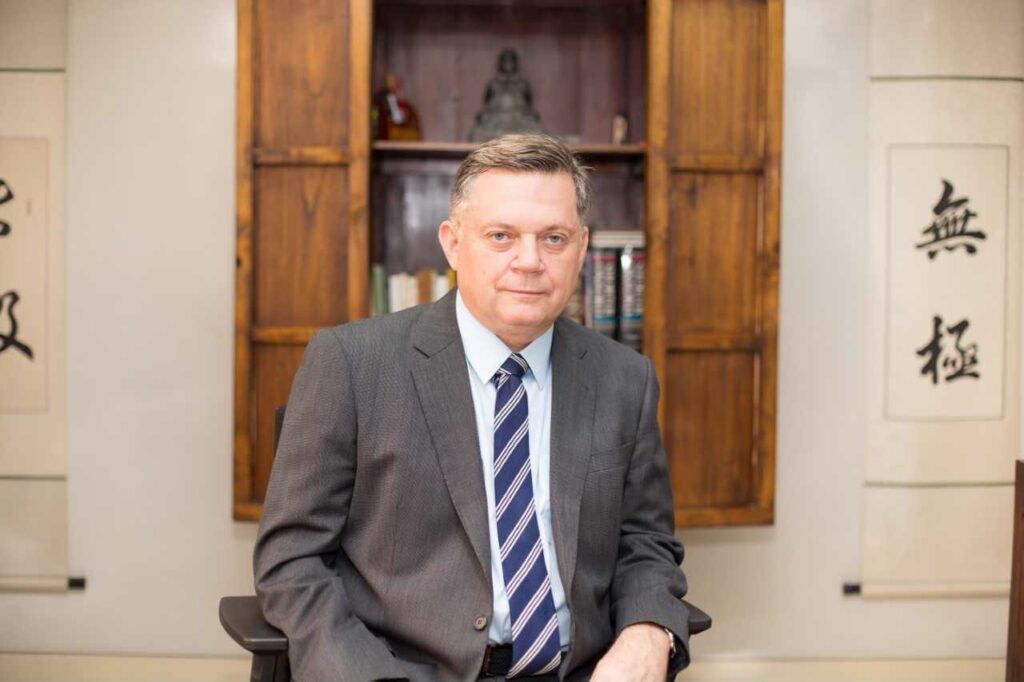From past to present – How China’s economic history is shaping its future.
Kiwi David Mahon first stepped off the plane in China in 1984 and fell in love with the country and its people. A year later he established his company Mahon China, and in the early 1990’s he became a pioneer of private equity in the mainland. During his time in China he’s seen the country undergo huge economic changes and has gained a strong understanding of how China’s economic past is working to shape its future.
It was carpets and flooring not private equity and managed funds that brought David to Beijing in the 1980s. Part of a small team working on the refurbishment of the Great Wall hotel in China, David immediately fell in love with the city and the feeling of change that was in the air.

“I sensed intelligence, determination and aspiration that I didn’t see anywhere else in the world. I believed in this place and where it was headed, and I wanted to be part of that.”
After the hotel refurbishment was done, David headed back to New Zealand and approached a few companies which had an interest in China. Returning to Beijing he set up Mahon China and started to connect with people from industrial companies who were coming to China trying to see what could be done. He gradually set up a consulting operation helping industrial companies to procure things. It was a chance conversation in the early 90’s that pushed him into investment management.
“I met the owner of a British fund management company by chance. After a late night conversation, I started helping him connect with institutions that wanted to invest in China. We joined forces and raised around $40m USD, which made us one of the larger China funds in those days.”
Eventually the British firm was acquired and that was the end of Mahon China’s partnership in private equity. However the company started helping fix problems that some joint ventures were having and got involved in stressed assets. Today Mahon China has managed five private equity funds, assisted multinationals to acquire assets in China, and worked as strategic advisor to boards in a number of industries. They currently manage stressed assets for European private equity firms and commercial banks and assist foreign companies to develop strategies to enter China.
During his almost four decades living in China, David has seen a massive change in the Chinese economy.
“Economic reform in China has been a constant feature over the past 40 years and the country has learned much from its economic management mistakes over the past four decades and tends not to repeat many, but it does remain deeply haunted by those that have sparked social unrest in the past.”
The Government’s current focus is on reigning in its tech sector and reforming education. But David says strong opportunities will continue to exist in these sectors for Kiwi businesses who do their homework.
“China will attract strong foreign investment in the coming years as the underlying economy is sound and the returns attractive. The Chinese Government is not hovering at the edge of each sector ready to nationalise commercial successes, but it is ready to marginalise what it perceives as companies operating beyond the state’s social controls.”
But he says these risks can be quantified, and there are grounds for confidence that the government can balance social control with a level of freedom that market operators require.
“Foreign investors and businesses must not ignore the need for social and political due diligence alongside financial and corporate due diligence. Whenever a sector is booming, people should stand back and see how rapid growth may relate to political sensitives and operate within the existing constraints of Chinese regulation.”
He says his top advice to Kiwi businesses looking to expand or invest is to make connections.
“Like anything, it’s about networks. Work your networks, spend time getting to know people.”
During David’s four decades in China he’s seen an incredible amount of change, but despite that he says he still feels the same way about the country as he did back in the 80s.
“I think it’s something a lot of offshore Kiwi will understand – living a long time in a foreign country we love, a part of ourselves becomes rooted there. It can create a small sense of loss when we leave and a deep feeling of coming home when we return.”

 MENU
MENU









